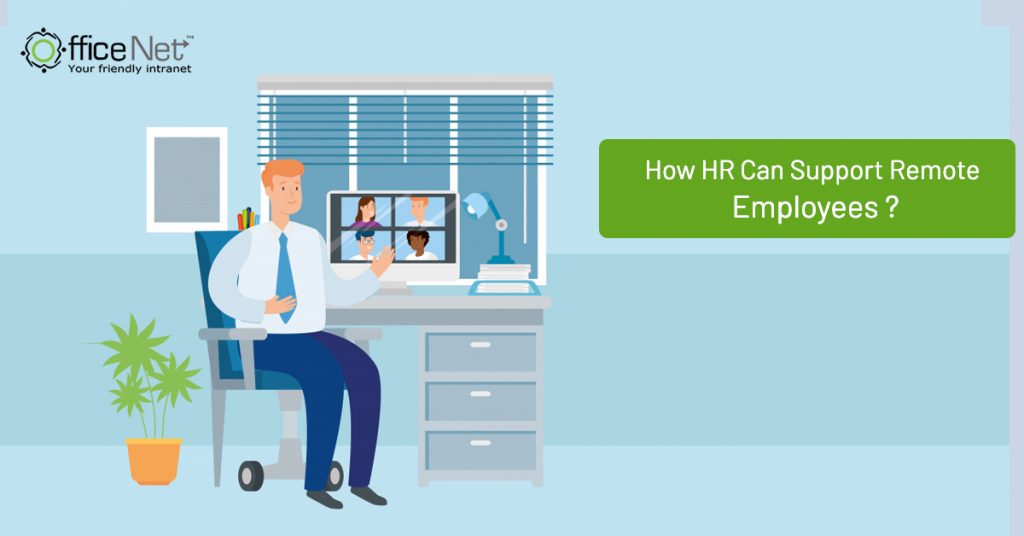HR can support remote employees

The coronavirus pandemic has caused unprecedented changes for many organizations. With the drift towards remote work, the benefits of allowing employees to work from home extend to employers as well as employees, as employers can limit or eliminate office space and save costs on everything starting with office utilities. But with remote work mode, we are also seeing new tendencies arise, such as employees feeling less connected with themselves and managers. Various research shows that employees who work remotely tend to be happier compared to their peers who have less work flexibility, but they can be unhappy if they don’t feel connected with their team.
It is important that we look at how HR can make sure that employees maintain their sense of connection in the process. Employees might miss out on the below aspects by working remotely:
1) Social connection with teammates
2) Face-to-face collaboration and team dynamics
3) Relationship building and camaraderie
4) A voice in decision making and input
5) Feeling appreciated
But there are ways to make the remote-work experience productive and engaging for employees and the organization. HR and business leaders can ensure that the remote staff is happy and engaged, as managing remote employees is different than managing employees in person. Some simple ways HR can support remote workers can be through
1) Staying connected digitally
Connecting with remote workers globally is easy nowadays with tools such as Google Hangouts, Zoom. By following a planned approach to check-in and show that you are there as support and are available to answer questions and involve the entire team. Since not every employee is the same when it comes to asking questions and expressing concerns, it is also important to check in frequently to make sure that they are comfortable and understand what is required.
2) Appreciating the remote staff
Thank-you notes are a great way to show that you are thinking of your employees despite the distance. Sending some small token of appreciation, such as office stationery or gadget accessories, to support in their work gives employers a chance to follow through their words of affirmation with concrete action.
3) Holding team building activities
The importance of building relationships can all be done digitally but it also helps to add some creativity and excitement. For instance, setting up a 15-minute tea /coffee session once a month between employees will give them the chance to dial into a video chat and connect.
4) Equip employees by providing or Specify All Needed Tools
Make sure employees have the technology they need to be successful, which may be more than just a mobile phone and laptop. Whether you are providing supplies or software or the employee needs to acquire these things on their own, it is essential that they know what they will need and have access to those items prior to the start of work-from-home. Request a member of your IT team, to host a webinar on using remote collaboration tools and invite employees to attend.
5) Provide an easy-to-access, personalized knowledge base
To access vital HR resources, eg, your company’s medical leave policy or harassment complaint procedure, there’s no reason why employees should have to be physically present to access vital HR resources with modern advances in cloud technology. By accessing a shared knowledge base, remote workers can quickly type in a search or select the appropriate category and scan related articles to find what they’re looking for.
HR leaders need to take proactive steps to motivate and support employees from working remotely. If initiatives, as suggested above, are effectively implemented, employers may see a boost in positive mental health and happiness and increase productivity at the same time.